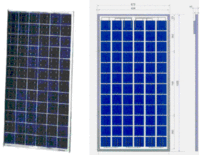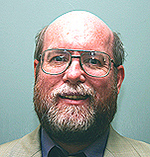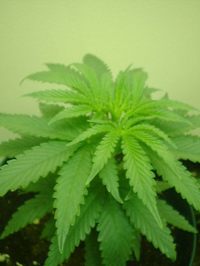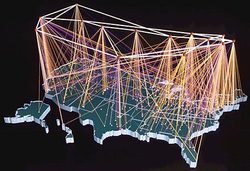The following is a work of fiction. Here is the Table of Contents, which is updated as new chapters are written.
It is the third in a series of sci-fi novels of the type known as
alternate history. What’s different is that this series takes place in
our time, with characters familiar in your real life.
The first book in the series, The Chinese Century, was written late 2004. Its table of contents is here. The second, The American Diaspora, was written in 2005. The table of contents for that book is here.
"Pot?"
"Pot," John repeated. "Cannabis. Ganja. Loco weed. Wacky tabacky. Spleef. Hash. Junk…"
"I get it," I said. John, my son and research assistant, merely smiled. He had been running experiments on the roof of my old company’s factory building for a month now, seeking the best feedstock for the cellulosic ethanol plant Richard Branson was so keen on.
It was obvious his results were amusing even him.
We were standing on that roof now, the Sun slanting down to the west over Johannesburg, South Africa, our home these last two years. John and his team from school had built a row of greenhouses out of plastic pipe and sheeting, powered by alternating rows of solar cells. They were looking at a half-dozen different plant types, all of which were common in the area, trying to find which used both sunlight and fertilizer most efficiently.
By using solar cells rather than local power, Branson felt, we might produce a factory-type power system which could be sited far from town. Branson envisioned alcohol factories throughout South Africa, manned by local people, producing enough ethanol to power both the nation’s cars and for export. In addition, ethanol could be used for jet fuel, and Virgin’s airplane fleet always needed jet fuel.
Each greenhouse held a thin, long rectangular container of seeds and growing medium. The containers were locked in place by metal clamps on sawhorses, so they could be moved easily. Rubber tubes at the ends of each container pushed or pulled water through the medium. Small jars over the recirculating tanks fed fertilizer to the system in controlled amounts.
It was designed to be scientific, but also cheap and replicable. After a set of plants grew to fill the greenhouse, the container could be disconnected, and replaced. A second set of sawhourses, pumps and tanks lay beyond each greenhouse, which were also powered by solar cells and, at night, by batteries they recharged. This let the team measure the performance of plants both inside the greenhouses and in the open air.
While the team had not yet done a formal weigh-in on their plants, it was obvious just looking across the rooftop how they were doing. Only one set of plants had even made it out of the greenhouse and it was the cannabis, with that familiar smell I recalled from my college days.
"There is one more thing," John said.
"Non-pot related?"
"Oh, yes," he said, smiling. "Instead of looking at the greenhouses, look between them."
I did. The rows of solar cells sat motionless. "What should I be looking at?"
"Well, as the old song goes, ‘one of these things is not like the others.’" John walked down the rows to where, I suddenly noticed, one set of panels was a slightly different color than the others.
"Mr. Branson sent these in two weeks ago. Instead of using silicon, with a manufacturing process just like computer chips, they use something called quantum dots. In full production, Mr. Branson says, they actually cost less to produce than conventional cells. And look at this." He pointed down toward a small voltmeter near the base of the unit. "We’re getting 10 times the output on these cells, per unit of sunlight, than with those others."
"That’s great. But what’s the significance?"
John gave me that look kids give their dense elders. "Every energy source we’re looking at, whether ethanol or hydrogen, is based on electricity. You need energy to turn cellulose into alcohol. You need energy to separate hydrogen from oxygen in water, or to turn alumina back into aluminum after using it in a Purdue Boilermaker. And electricity is the default power source for everything else."
"So?"
"Everything depends on how much electricity you can produce, by whatever means, and the cost of moving that electricity from where it’s made to where it’s needed. If you produce electricity in a remote place, and bring it into the city, you lose half of it along the way, because steel power lines are like leaking buckets.
"Most of the renewable fuels we’re looking at – wind, water, geothermal – they produce best with power plants which are far away. They’re noisy, or dangerous, or just too distracting to put in town. We either turn that electricity into something else, or have to make twice as much as we need, using current technology.

"That’s not true with solar." John spread his arm across the rooftop. "Solar is the cleanest energy we have. You can produce it anywhere, on a house, on a factory, on an office building, in any open space. You can make it where you use it. If you have too much, you can sell it back to the power company, or if they won’t buy it you can transform it into hydrogen on-the-spot, then transport the hydrogen using canisters or gas pipelines to fuel cells.
"Oh, and you know the name for the pollution fuel cells produce?" I shook my head. "They combine hydrogen with oxygen to produce energy and water. Pure, clean, unpolluted water. The more fuel cells you have someplace, the more water you’re producing.
"So the key variable isn’t how much biomass we can produce. It’s how much solar energy we can collect, per, say, one square meter of space. And these little babies," he motioned to the cells with his foot, "give you 10 times the power, per meter, of those others."
He wa s smiling again. "Want to know the best part?"
s smiling again. "Want to know the best part?"
I shook my head.
"These things aren’t a speed limit. They can get better. Through that thing you wrote about years ago. Moore’s Law?"
Now I was the one smiling.










